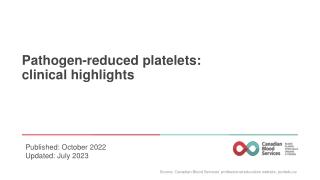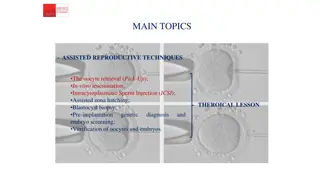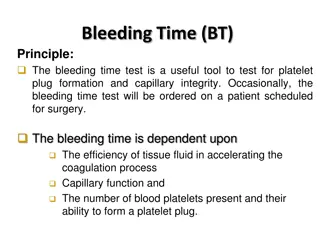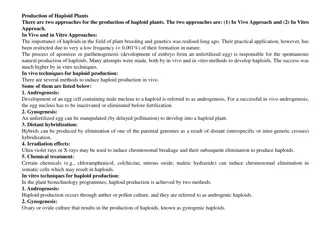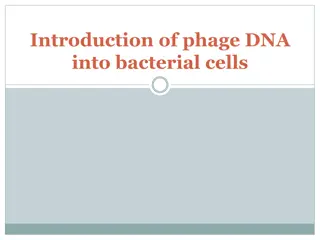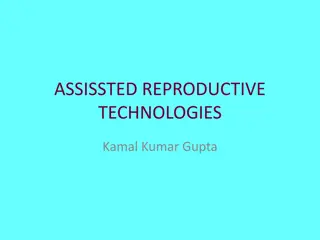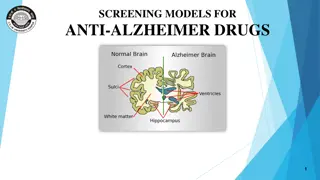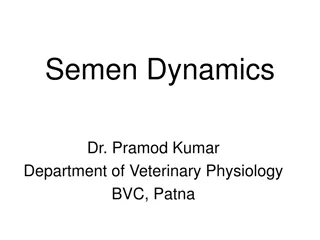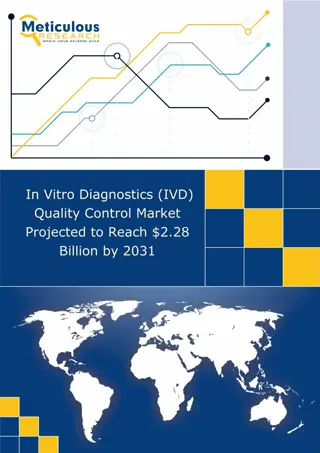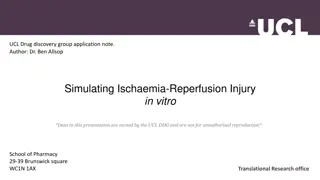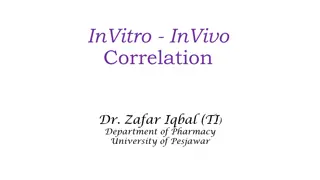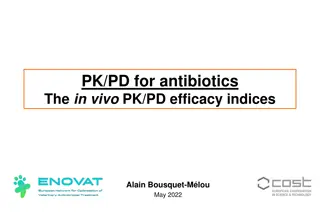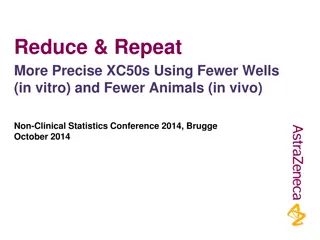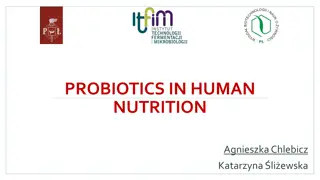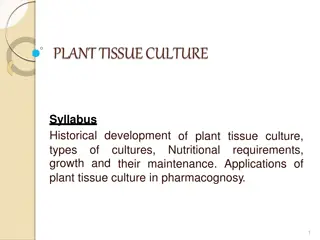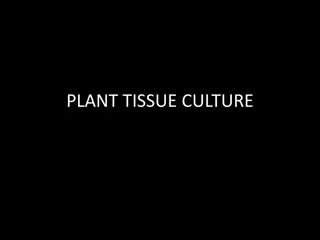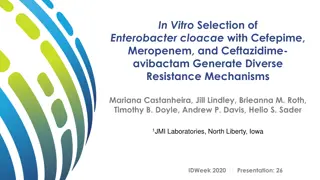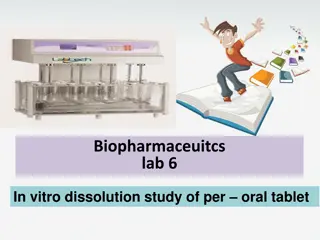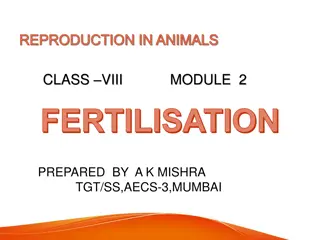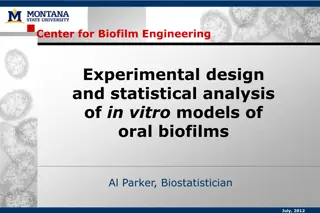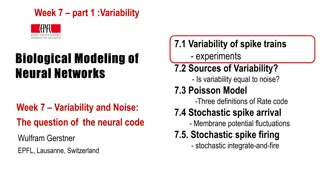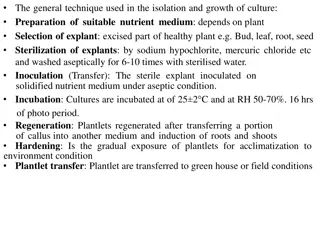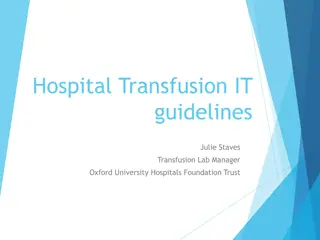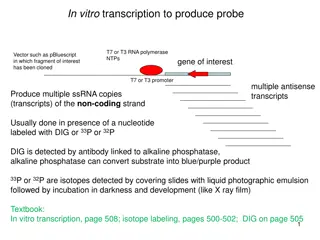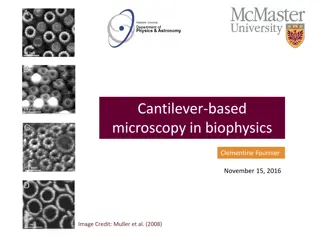In Vitro Diagnostic (IVD) Products Market Size
\u2018Indonesia IVD Market by Product (Kits, Instruments, Software), Technology (Immunoassay, Hematology, Coagulation, Diabetes, Molecular), Application (Infectious Diseases, Cardiology, Oncology), and End User (Hospital, Diagnostic Lab, Home Care) - Forecast to 2029.\u2019\nAccording to this latest
2 views • 4 slides
Pathogen-reduced platelets: clinical highlights
Pathogen-reduced platelets play a crucial role in reducing the risk of transfusion-transmitted infections through pathogen inactivation technology (PIT). This technology provides an additional layer of safety against various pathogens including viruses, bacteria, protozoa, and leukocytes. Platelet c
2 views • 17 slides
Assisted Reproductive Techniques: Oocyte Retrieval Process
The process of oocyte retrieval in assisted reproductive techniques involves the careful retrieval of cumulus-oocyte complexes from follicular fluid under anesthesia and ultrasound guidance. These complexes are then sorted and stored before further procedures such as in-vitro insemination or intracy
1 views • 13 slides
Summary of Standards in Medical Technology and In Vitro Diagnostics 2023 by SIS
The Swedish Institute for Standards, SIS, focuses on purity technology, anesthesia and respiratory equipment, and medical consumables within healthcare. SIS/TK.108 addresses purity requirements for sensitive product manufacturing, while SIS/TK.329 revises safety standards for medical gas installatio
3 views • 19 slides
Understanding Bleeding Time and Coagulation Time Tests
The Bleeding Time (BT) test evaluates platelet plug formation and capillary integrity, crucial for surgery preparations. Prolonged bleeding times indicate low platelet count or dysfunction. The Duke method is one way to determine Bleeding Time. Sources of error, such as medication interference, impr
5 views • 8 slides
FDA Perspective on Epidemiological Cut-off Values (ECVs)
The FDA presents insights on the development and use of Epidemiological Cut-off Values (ECVs) to distinguish wild-type populations from those with acquired resistance mechanisms. ECVs are crucial for determining antimicrobial susceptibility and guiding treatment decisions. The process involves analy
0 views • 13 slides
Understanding Plant Tissue Culture: Methods and Requirements
Plant tissue culture involves the in-vitro culture of plant explants under aseptic conditions, covering cell, organ, and suspension cultures. This process, pioneered by German botanist Gottlieb Haberlandt, relies on the totipotency of plant cells. Key requirements include laboratory organization, su
0 views • 18 slides
Production of Haploid Plants: Approaches and Significance
There are two main approaches for haploid plant production - in vivo and in vitro methods. Haploids are important in plant breeding but are rare naturally. Various techniques like androgenesis, gynogenesis, distant hybridization, irradiation, and chemical treatments are used to induce haploid produc
0 views • 4 slides
Introduction to Phage DNA Integration in Bacterial Cells
Phage DNA can be introduced into bacterial cells through two methods: transfection and in vitro packaging. Transfection involves mixing purified phage DNA with competent E. coli cells, inducing DNA uptake via heat shock. In vitro packaging utilizes proteins coded by the phage genome, which can be pr
1 views • 13 slides
Understanding Plant Tissue Culture Media and Their Importance in In Vitro Growth
Plant tissue culture media play a crucial role in the in vitro growth and morphogenesis of plant tissues. The composition of culture media depends on the specific plant species and the type of material used for culture. Various types of media, such as White's medium, MS medium, B5 medium, N6 medium,
0 views • 6 slides
Methods for Mass Production of AM Inoculants
Techniques for mass production of arbuscular mycorrhizal (AM) inoculants involve in vivo culture on green house plants, spore production with antibiotic treatment, field growth monitoring, and in vitro/axenic culture techniques. Solutions include using living roots, inert substances like vermiculite
1 views • 12 slides
Assisted Reproductive Technologies: Gamete Intra-fallopian Transfer (GIFT)
Assisted Reproductive Technologies (ART), such as Gamete Intra-fallopian Transfer (GIFT), offer a method for couples struggling with infertility. GIFT involves placing fertilized eggs in the fallopian tubes, unlike In Vitro Fertilization (IVF). The procedure requires healthy fallopian tubes and offe
1 views • 25 slides
Understanding Screening Models for Anti-Alzheimer Drugs
Alzheimer's disease is a prevalent neurodegenerative brain disorder characterized by memory loss and other cognitive impairments. This article discusses the etiology, risk factors, and pathophysiology of Alzheimer's disease, along with in-vitro screening models used to test potential drugs, focusing
0 views • 24 slides
Importance of In-Vitro Dissolution Testing in Drug Assessment
In drug development, in-vitro dissolution testing plays a crucial role in evaluating drug release from tablets when in-vivo bioavailability studies are limited. By ensuring drug release is close to 100% and uniform batch to batch, these tests help assess drug availability and effectiveness. Regulato
10 views • 10 slides
Understanding Semen Dynamics and Capacitation in Mammalian Spermatozoa
Semen dynamics play a crucial role in mammalian reproduction, with capacitation being a key process for sperm fertilization capability. Capacitation involves physiological changes in sperm, leading to the acrosome reaction, crucial for oocyte penetration. As sperm transit through the epididymis, the
5 views • 13 slides
In Vitro Diagnostics (IVD) Quality Control Market Projected to Reach $2.28 Billi
Meticulous Research\u00ae\u2014a leading market research company, published a research report titled,\n \u2018IVD Quality Control Market Size, Share, Forecast & Trends Analysis by Offering (Product \n[Serum, Blood], Data Management, Service) Technolo
0 views • 3 slides
Understanding Ischaemia-Reperfusion Injury: Implications in Disease
Ischaemia-reperfusion injury (IRI) is a critical event involving cellular changes due to the disruption and subsequent restoration of blood supply. This process can lead to necrotic and apoptotic cell death, contributing to conditions such as heart attacks, strokes, and cancer. Dr. Ben Allsop's rese
0 views • 6 slides
Understanding IVIVC in Pharmaceutical Sciences
In the field of pharmaceutical sciences, In Vitro-In Vivo Correlation (IVIVC) plays a crucial role in predicting the relationship between in vitro dissolution rates of drug dosage forms and in vivo absorption rates. This correlation is essential for bioequivalence studies, reducing the number of tri
0 views • 24 slides
Understanding PK/PD Approach for Antibiotics: In Vivo Efficacy Indices
Exploring the PK/PD approach for antibiotics involves considering factors such as dose administered, in vitro therapeutic effect, MIC, rates of bacterial killing, and plasma concentrations to predict treatment efficacy. The location of pathogens, binding to plasma proteins, and tissue concentrations
0 views • 27 slides
Fecondazione In Vitro (FIV)_ Un Viaggio nel Mondo della Riproduzione Assistita
Questo articolo offre una comprensione approfondita della Fecondazione In Vitro elivaclinic.it e del suo ruolo nel contesto attuale della riproduzione assistita. Che tu stia considerando la FIV, sia nel bel mezzo del trattamento o semplicemente curio
1 views • 5 slides
In Vitro Fertilization_ Understanding the Process and Its Benefits
In vitro fertilization elivaclinic.co.uk has revolutionized the field of reproductive medicine, offering hope to many who struggle with infertility. By understanding the IVF process and its numerous benefits, individuals and couples can make informed
0 views • 5 slides
Enhancing XC50 Precision with Reduced Resources in Non-Clinical Statistics
Explore innovative approaches presented in the Non-Clinical Statistics Conference 2014 to reduce resources while maintaining precision in determining XC50 values, emphasizing the use of fewer wells in vitro and fewer animals in vivo. Jonathan Bright shares insights on reducing wells, replicates, and
0 views • 23 slides
Understanding the Role of Probiotics in Human Nutrition
Probiotics are live microorganisms that provide health benefits when consumed in adequate amounts. They should be safe, stable, nonpathogenic, and capable of various beneficial actions such as enhancing gut integrity, detoxifying, and modulating the immune system. Probiotics have a positive impact o
0 views • 14 slides
Plant Tissue Culture: Historical Development, Techniques, and Applications
Plant tissue culture is an experimental technique that involves the in-vitro cultivation of plant cells to produce secondary metabolites, regenerate plants, and study organogenesis. This process allows for the maintenance of disease-free plant material, biosynthetic pathway tracing, and cell immobil
0 views • 21 slides
Understanding Plant Tissue Culture: A Brief Introduction
Plant tissue culture involves the in-vitro cultivation of plant cells or tissues under controlled conditions for various applications like the production of metabolites and plant regeneration. This experimental technique facilitates the production of callus from explant tissues, which can be used fo
0 views • 39 slides
Alternative Reproductive Techniques in Fertility Treatments
Alternative reproductive techniques such as Gamete Intra-Fallopian Transfer (GIFT) offer options beyond traditional in vitro fertilization for women facing certain infertility challenges. GIFT involves transferring washed sperm and harvested ova to the fallopian tube via laparoscopy, allowing fertil
0 views • 13 slides
Understanding Recombinant DNA and Gene Cloning
Recombinant DNA is artificially created by combining DNA from multiple sources into a single molecule. This process involves treating DNA with restriction endonucleases, such as BamHI, which cut at specific sites, resulting in sticky ends that can base pair with complementary DNA molecules. DNA liga
0 views • 33 slides
Ultra Low Power ADC for In-Vitro Micro-Electrodes Array
Collaborative research project at TIMA Laboratory in France focusing on developing ultra-low power Analog to Digital Converters (ADC) for in-vitro micro-electrode arrays, aiming to enhance communication with the brain using electronics sensors. The project addresses key limitations such as power dis
0 views • 6 slides
Cloning Other Genes and Recombinant DNA Technology
The recombinant vector with a kanamycin resistance gene can be used to clone other genes by inserting human DNA fragments and selecting transformed E. coli cells. This technique has enabled the production of various human proteins for therapeutic purposes, such as insulin, growth hormones, and clot-
0 views • 6 slides
Advancements in Non-Animal Testing for Neurotoxicity Assessment
New Approach Methodologies (NAMs) are being developed to evaluate developmental neurotoxicity without the use of animal testing. The EPA is prioritizing efforts to reduce animal testing and is actively supporting the development of NAMs. These methodologies involve using in vitro assays to assess cr
0 views • 20 slides
In Vitro Selection of Enterobacter cloacae Resistance Mechanisms with Antibiotics
Study by Mariana Castanheira et al. presented at IDWeek 2020 discusses the generation of diverse resistance mechanisms in Enterobacter cloacae with cefepime, meropenem, and ceftazidime-avibactam. E. cloacae, a significant pathogen causing human infections, exhibits various resistance mechanisms, inc
0 views • 21 slides
In Vitro Dissolution Study of Per Oral Tablet: Understanding Drug Absorption
Dissolution is a crucial process for drug absorption, where solid dosage forms must dissolve in gastrointestinal fluid before absorption. Factors affecting dissolution rate include agitation intensity, drug solubility, and surface area exposed to the dissolution medium. Dissolution testing plays a k
0 views • 12 slides
Understanding Fertilisation and Embryo Development in Animals
The process of reproduction in animals involves the crucial step of fertilisation, where a sperm fuses with an egg to form a zygote. There are two main types of fertilisation - internal and external. Internal fertilisation occurs within the female body, as seen in humans, cows, and other animals. On
0 views • 16 slides
Statistical Thinking in In Vitro Biofilm Research
Explore the importance of statistical thinking in in vitro biofilm research, including experimental design, uncertainty assessment, and the attributes of in vitro methods like repeatability and resemblance. Learn how statistical thinking helps anticipate criticism, provide convincing results, increa
0 views • 30 slides
Exploring Variability and Noise in Neural Networks
Understanding the variability of spike trains and sources of variability in neural networks, dissecting if variability is equivalent to noise. Delving into the Poisson model, stochastic spike arrival, and firing, and biological modeling of neural networks. Examining variability in different brain re
0 views • 71 slides
Plant Tissue Culture Techniques: Isolation and Growth
Plant tissue culture involves preparing a suitable nutrient medium, selecting healthy plant explants, sterilizing them, inoculating on solid medium, incubating under controlled conditions, inducing regeneration, and hardening before transferring to greenhouse or field. Various types of cultures can
0 views • 20 slides
Hospital Transfusion IT Guidelines - Overview and Updates
Comprehensive guidelines for Hospital Transfusion IT systems by Julie Staves, Transfusion Lab Manager at Oxford University Hospitals Foundation Trust. Explains the need for guidelines in ensuring patient safety, the structure of the guideline, recent changes, and new developments. Covers essential t
0 views • 18 slides
Understanding In Vitro Transcription and Probe Production
In vitro transcription involves utilizing T7 or T3 RNA polymerase to produce multiple single-stranded RNA copies of a gene of interest. These transcripts can be used to create probes for detecting specific RNA sequences. The process often involves labeling with DIG or radioisotopes like 33P or 32P,
0 views • 8 slides
Understanding Cantilever-Based Microscopy in Biophysics
Cantilever-based microscopy in biophysics explores the operating principles of an Atomic Force Microscope (AFM). It delves into high-resolution imaging and nano-force testing, with applications in biophysics. AFM works by measuring the interaction between the atom on the tip and atoms in the sample,
0 views • 18 slides

